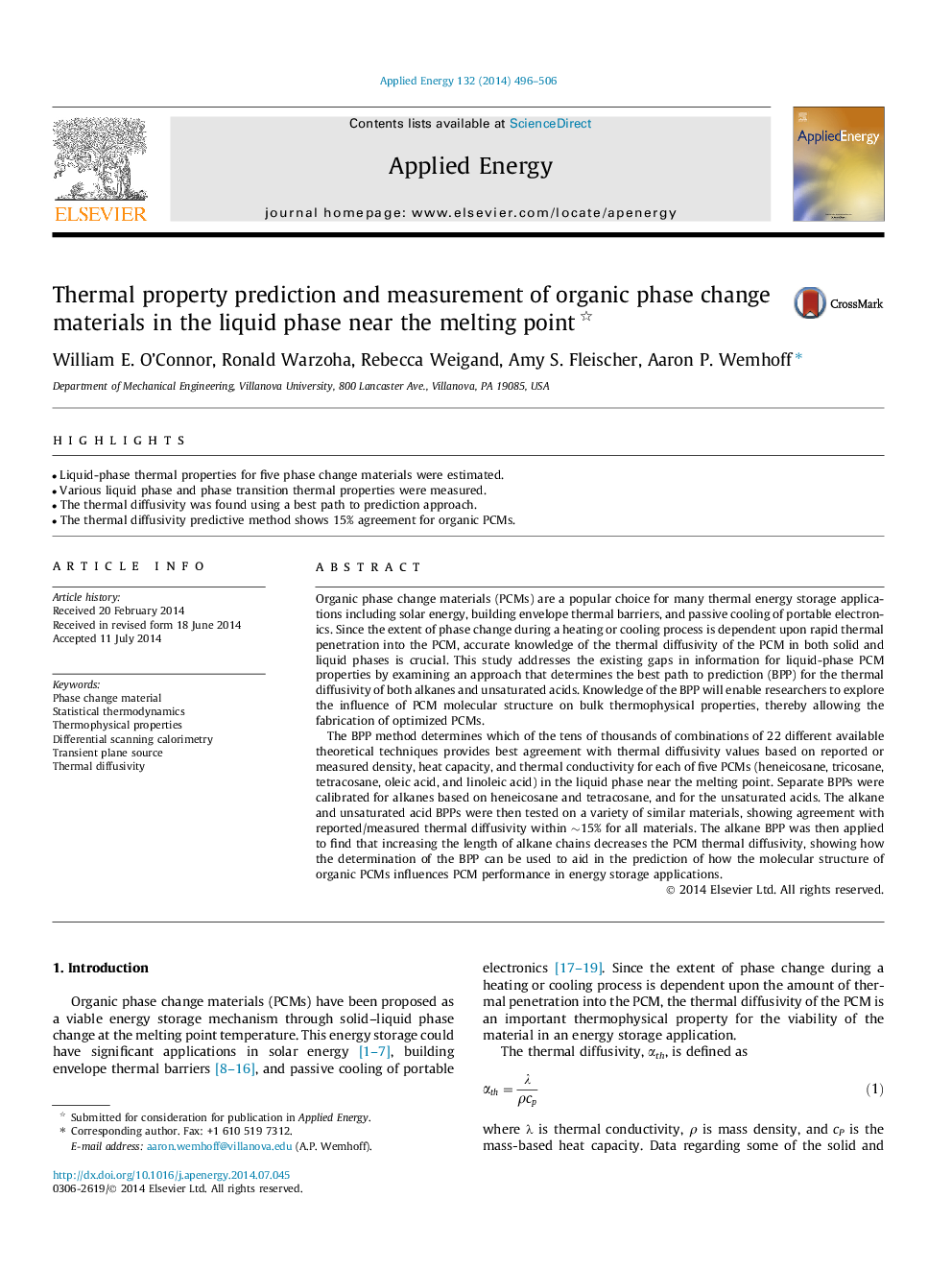| Article ID | Journal | Published Year | Pages | File Type |
|---|---|---|---|---|
| 6689894 | Applied Energy | 2014 | 11 Pages |
Abstract
The BPP method determines which of the tens of thousands of combinations of 22 different available theoretical techniques provides best agreement with thermal diffusivity values based on reported or measured density, heat capacity, and thermal conductivity for each of five PCMs (heneicosane, tricosane, tetracosane, oleic acid, and linoleic acid) in the liquid phase near the melting point. Separate BPPs were calibrated for alkanes based on heneicosane and tetracosane, and for the unsaturated acids. The alkane and unsaturated acid BPPs were then tested on a variety of similar materials, showing agreement with reported/measured thermal diffusivity within â¼15% for all materials. The alkane BPP was then applied to find that increasing the length of alkane chains decreases the PCM thermal diffusivity, showing how the determination of the BPP can be used to aid in the prediction of how the molecular structure of organic PCMs influences PCM performance in energy storage applications.
Keywords
Related Topics
Physical Sciences and Engineering
Energy
Energy Engineering and Power Technology
Authors
William E. O'Connor, Ronald Warzoha, Rebecca Weigand, Amy S. Fleischer, Aaron P. Wemhoff,
